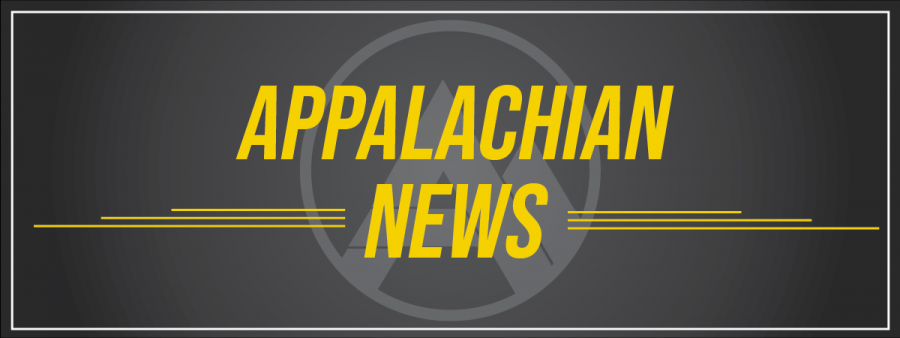As the sun set outside the Turchin Center Saturday evening, a professor, a diversity officer, a town council representative, a survivors’ child and a Rabbi made their way to the stage for one purpose: to stand with the Boone community in remembrance of the Holocaust.
In honor of International Holocaust Remembrance Day, the Center for Judaic, Holocaust and Peace Studies — led by their director, Amy Hudnall — held an hour-long memorial service.
The service featured four speakers who each had a relationship with the topic at hand.
Hudnall was the first speaker to stand at the podium that night. She opened the memorial service with a brief introduction on how the service would play out.
“Days like today are extremely important for the world,” Hudnall said. “They teach us not only to remember those who died, but also those who survived to tell us their stories.”
Up next was Chief Diversity Officer Jamie Parson, who brought not only her own words to the service but also spoke on behalf of App State Chancellor Sheri Everts, showing App State’s solidarity for the memorial service.
“Remembering and shining an uncompromising light on atrocities like the Holocaust is a moral imperative for those of us who came after,” Parson said at the conclusion of her speech.
Following Parson’s portion of the event was Edie Tugman, who attended and spoke as a representative of the Boone Town Council.
Tugman used her time on stage not only to express her and the town of Boone’s solidarity with the memorial service but also to dedicate her portion of the event to the late Rennie Brantz, a former Boone mayor who passed away in October of 2023.
“Dr. Rennie Brantz was a very dear friend of ours for over 40 years,” Tugman said. “Being one of the primary founders of the Center for Judaic Holocaust and Peace Studies, as well as the Holocaust Teaching Symposium, are the kind of thing that will live on as a reflection of who he was and what was important to him. His dedication to his work is admirable, and he is missed.”
Once Tugman had finished her speech and left the stage, the penultimate speaker of the service, Michael Berkowitz, took the stage to tell the story of his Holocaust survivor parents and his own story of dealing with the immediate after-effects of World War II as a whole.
“It has been said that the death of an individual is a tragedy, while the death of millions is a statistic,” Berkowitz said. “The Holocaust did not only affect those that lost family or friends but also those that grew up post-war.”
Berkowitz told the story of his parents, who escaped from German-occupied Poland to Russia and had to work relentlessly to survive. He contextualized his entire speech with the idea that, as the child of two Holocaust survivors, he suffered as a victim of the Holocaust and its after effects as well.
“When we think about Holocaust victims, you need to include those of us, who by virtue of situations like I’ve described, also suffered,” Berkowitz said.
The final speaker of the night was Rabbi Alty Weinreb of Boone’s Temple of the High Country, who finished off the memorial service with some words about how he remembers the Holocaust, followed by leading the audience in a traditional Jewish sermon.
“First, we must remember. That isn’t the same as not forgetting. Not forgetting happens out of fear. Remembering happens out of love,” Weinreb said. “Active memory is a gesture of love and kindness.”
After a brief Hebrew sermon and a performance of “We Release and We Let Go,” the memorial service came to a close.

